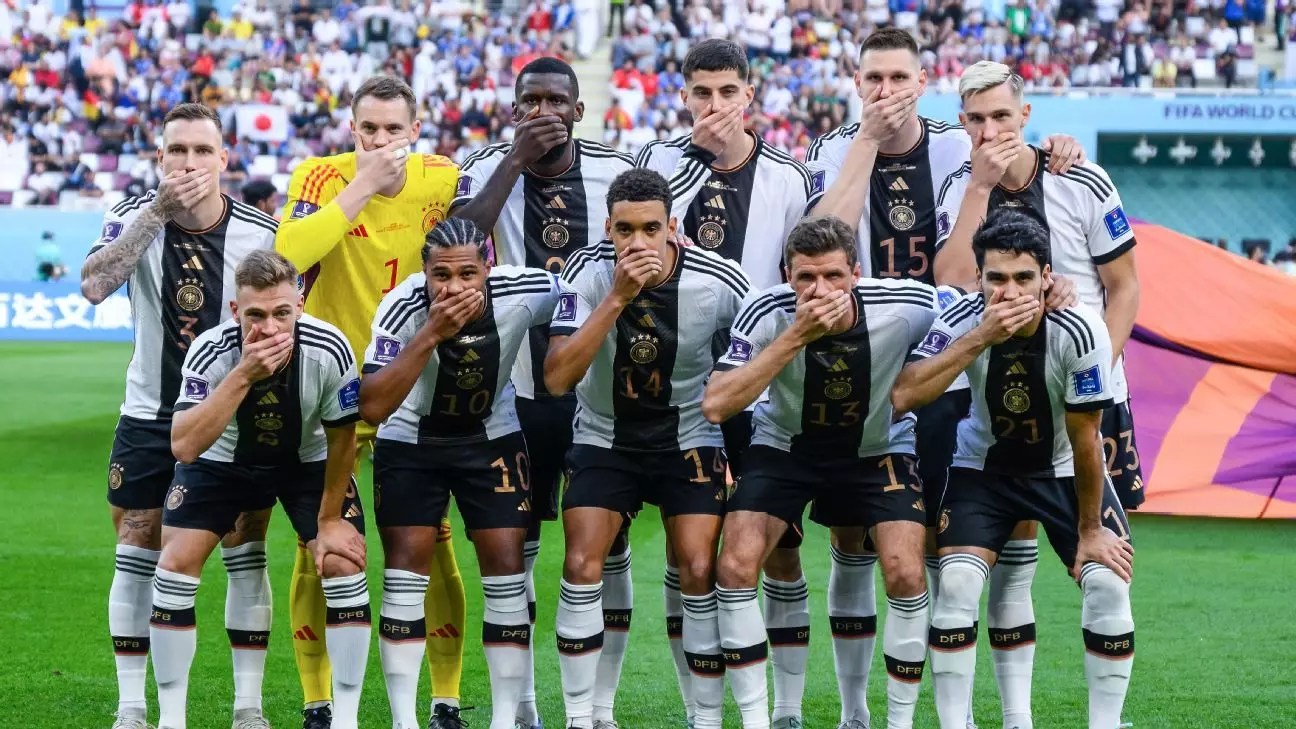In the intersection of sports and politics, the expectations placed on athletes to serve as societal role models are continually evolving. The recent statements made by Joshua Kimmich, the captain of the German national soccer team, shed light on the complex web of responsibilities athletes face in the modern world, particularly in relation to politically charged events like the bidding for the 2034 World Cup in Saudi Arabia.
Kimmich emphasized that while athletes embody certain values and may have influence as public figures, they are not political experts. His remarks challenge the notion that sports figures should always take political stances or advocate for social justice, suggesting that their primary role may lie in inspiring others through their performance rather than becoming embroiled in political controversies. This raises an important consideration: should athletes engage in political discourse, or would such engagement detract from their primary responsibilities on the field?
The dynamics of this debate are particularly evident in the context of Kimmich’s own experiences as part of a national team that attempted to express dissent during the 2022 World Cup in Qatar. Anticipation for the tournament was marred by discussions of human rights violations and the visibility of political statements, leading to a precarious balance between competition and activism.
Kimmich’s candid reflections on Germany’s approach during the Qatar World Cup reveal a sobering understanding of the complexities involved in merging sports with political statements. He pointed out that Germany’s efforts to make a political statement did not yield a favorable outcome, neither for the team nor for the representation of the country. The team’s symbolic gesture of covering their mouths during a photo op, intended to protest FIFA’s sanctions against wearing the “OneLove” armband, became a focal point but did not translate into the desired impact.
This episode illustrates the challenges athletes face when attempting to navigate their platforms for social issues while remaining committed to the essence of competition. Ultimately, Kimmich noted that Germany’s focus on political issues led to a distraction, ultimately overshadowing their performance and tarnishing the celebratory nature of the event. This dichotomy raises critical questions about the effectiveness of such protests and whether athletes should prioritize competition over political engagement.
As Kimmich and the German team look towards the future, particularly concerning Saudi Arabia’s World Cup bid, the broader conversation shifts to how nations align themselves with values of human rights and ethical governance. Human rights organizations have vehemently opposed Saudi Arabia’s bid, highlighting a consistent pattern of alleged abuses that starkly contrasts with the universal values purportedly embodied by many nations.
Germany’s previous attempts to speak out on these matters have highlighted their own national challenges. Kimmich admitted that Germany, despite its advocacy for values such as diversity and tolerance, must also confront its own domestic issues before setting a global standard. This introspection signifies a level of accountability, affirming that while the push for universal human rights is essential, nations must also reflect on their practices and ensure they are not hypocritical.
As the countdown to the 2034 World Cup approaches, Kimmich’s insights serve as a critical reminder of the ongoing ethical dilemma athletes face. While it is noble for players to support values they hold dear, the expectations to act as political commentators can distort their primary role. The discussion surrounding the Saudi bid exemplifies how political affiliations and stances can overshadow athletic achievements.
Ultimately, Kimmich’s stance encourages a reevaluation of how athletes should position themselves as role models. As they strive for excellence on the field, their commitment to sport may inherently offer a more profound impact than political statements. In a world where every action and word is scrutinized, the future of sports may increasingly depend on clarity regarding the boundaries between athletic prowess and political dialogue.


Leave a Reply